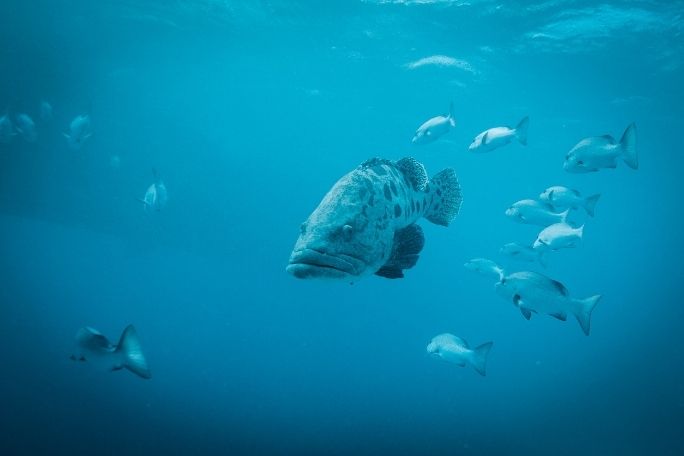Lesson summary
This lesson incorporates clips from Blue The Film as learning inspiration. Students investigate the causes of ocean warming and ocean acidification and analyse their impact on coral reefs. They begin by watching and responding to a clip about how the ocean is changing, and discuss the details of some of these changes. Using the jigsaw classroom method, students then work in groups to undertake research into ocean acidification and coral reefs, and will then work in different groups to make a scientific poster describing how increased carbon dioxide in the atmosphere affects the coral reefs. Finally, students are asked to watch another clip and to reflect on how their impressions of this clip are influenced by the scientific knowledge they acquired throughout this lesson.
Learning intentions:
Students will...
- describe how the products of combustion reactions enter the ocean and affect its chemistry
- understand how these changes impact the marine ecosystem.
Success criteria:
Students can...
- Identify the impact of carbon dioxide on the ocean
- Understand the importance of coral reefs
- Understand how carbon dioxide leads to ocean warming and ocean acidification
- Understand how ocean warming and ocean acidification affect the coral reefs, impacting the marine ecosystem
- Understand that science can be used to understand and solve problems
- undertake research into scientific issues
- produce a scientific poster.
Lesson guides and printables
Lesson details
Curriculum mapping
Australian curriculum content descriptions:
Year 9 Science:
- Chemical reactions, including combustion and the reactions of acids, are important in both non-living and living systems and involve energy transfer (ACSSU179).
- People use scientific knowledge to evaluate whether they accept claims, explanations or predictions, and advances in science can affect people’s lives, including generating new career opportunities (ACSHE160).
- Use knowledge of scientific concepts to draw conclusions that are consistent with evidence (ACSIS170).
Syllabus outcomes: SC5-16CW, SC5-13ES, SC5-7WS
General capabilities: Critical and Creative Thinking
Cross-curriculum priority: Sustainability OI.1
Relevant parts of Year 9 Science achievement standards: Students describe examples of important chemical reactions and describe social and technological factors that have influenced scientific developments and. They use appropriate language and representations when communicating their findings and ideas to specific audiences.
Unit of work: Blue The Film – Science – Year 9 & 10.
Time required: 60 mins.
Level of teacher scaffolding: Medium – facilitate class discussion.
Resources required
- Student Worksheet – one copy per student
- Device capable of presenting a clip to the class
- One copy per student of the Scientific Poster Assessment Rubric.
Skills
This lesson is designed to build students’ competencies in the following skills:
- Communication
- Collaboration
- Digital literacy
Additional info
Blue is a feature documentary film charting the drastic decline in the health of our oceans. With more than half of all marine life lost and the expansion of the industrialization of the seas, the film sets out the challenges we are facing and the opportunities for positive change. Blue changes the way we think about our liquid world and inspires the audience to action. Find out how to screen or download the film here. Along with the film is an ambitious global campaign to create advocacy and behaviour change through the #oceanguardian movement. To become an ocean guardian, see the website.


Welcome back!
Don't have an account yet?
Log in with:
By signing up to Cool.org you consent and agree to Cool's privacy policy to
store, manage and process your personal information. To read more, please see
our privacy policy here(Opens in new tab).
Create your free Cool.org account.
Many of our resources are free, with an option to upgrade to Cool+ for premium content.
Already have an account?
Sign up with:
By signing up to Cool.org you consent and agree to Cool's privacy policy to
store, manage and process your personal information. To read more, please see
our privacy policy here(Opens in new tab).